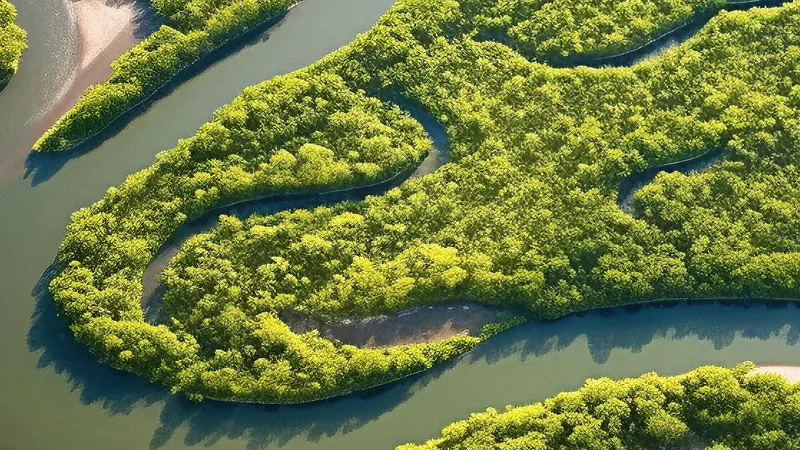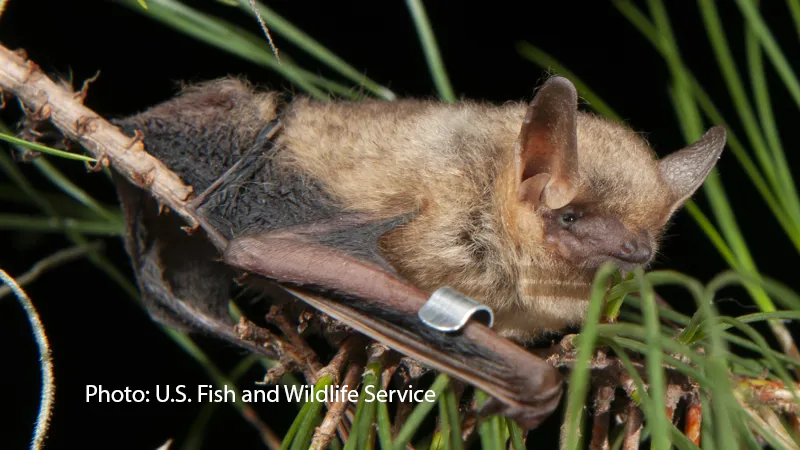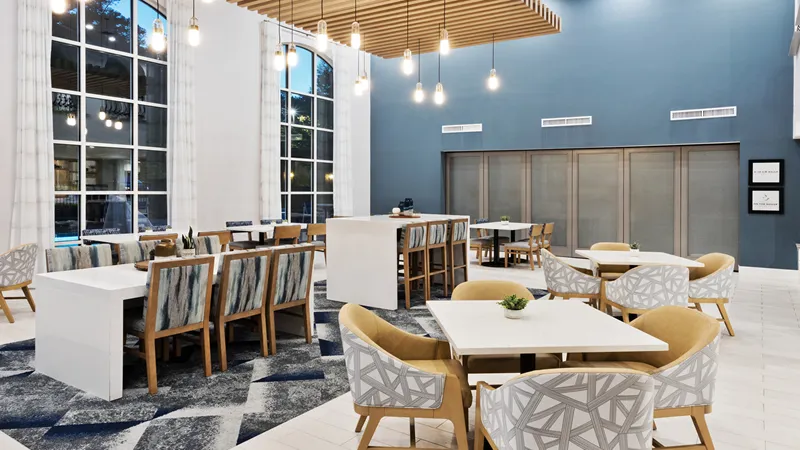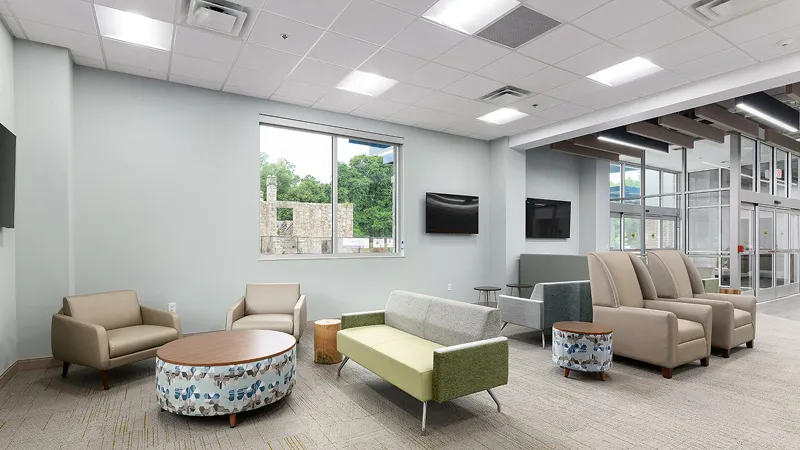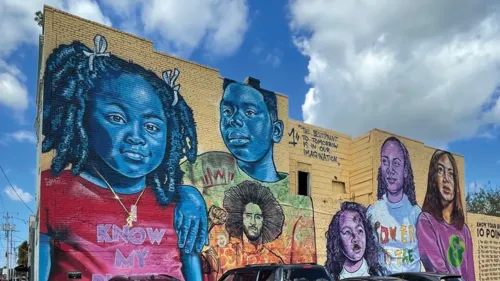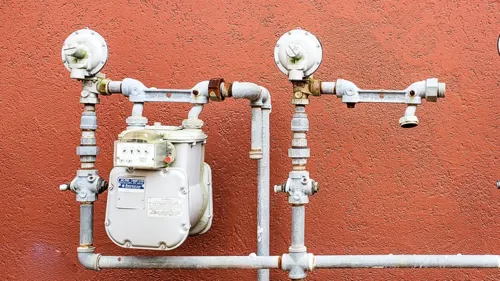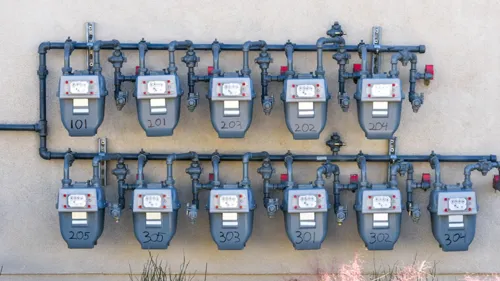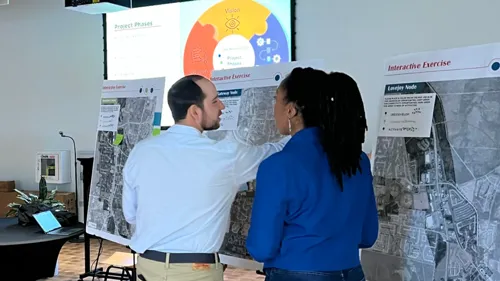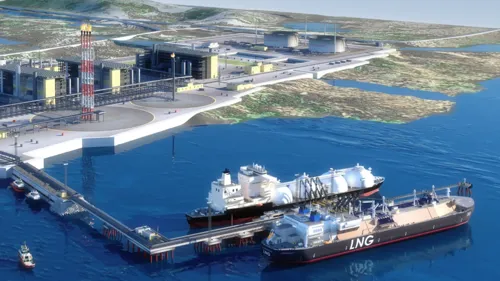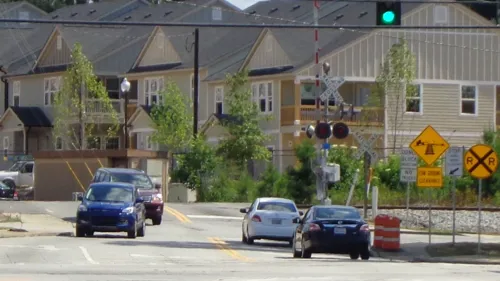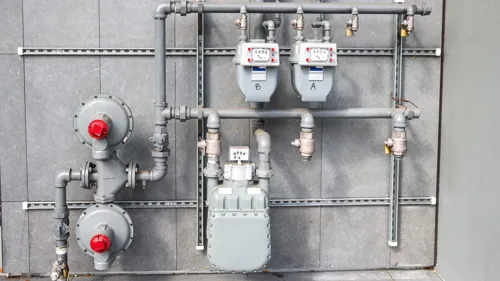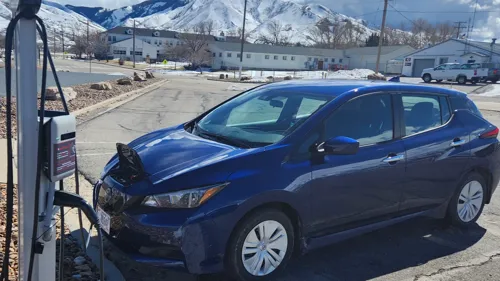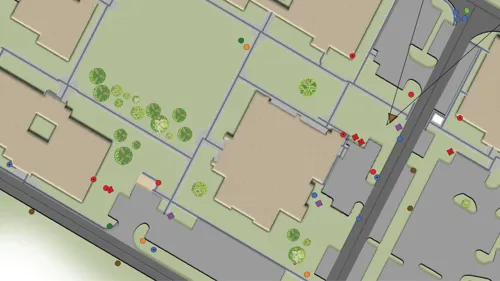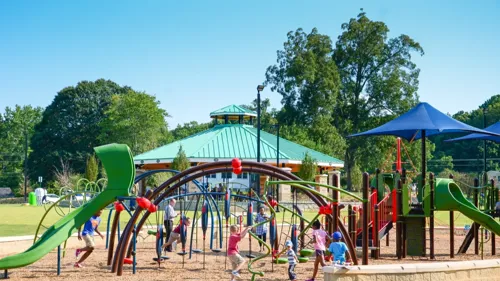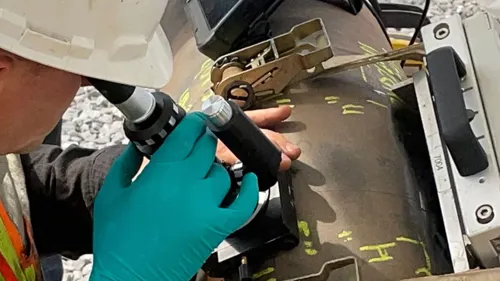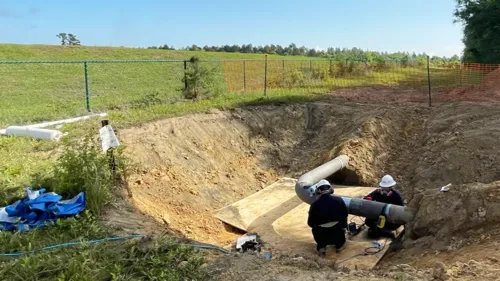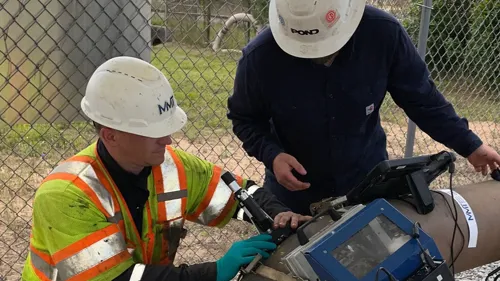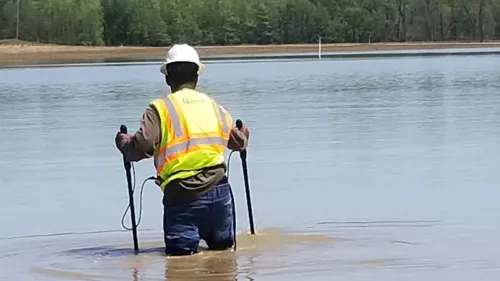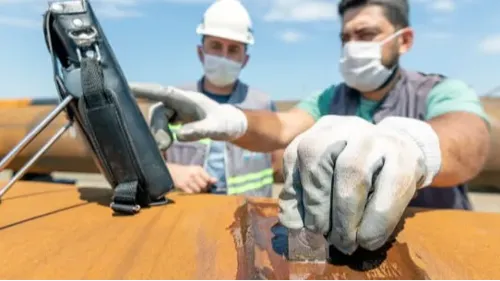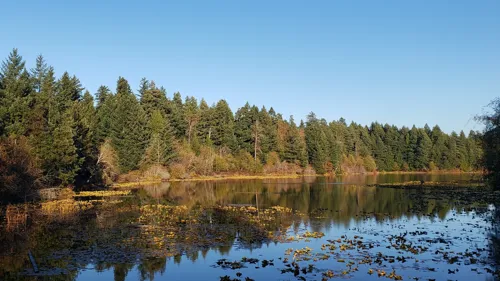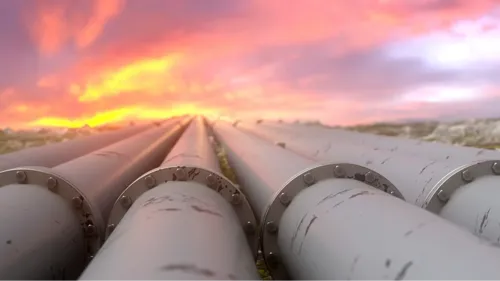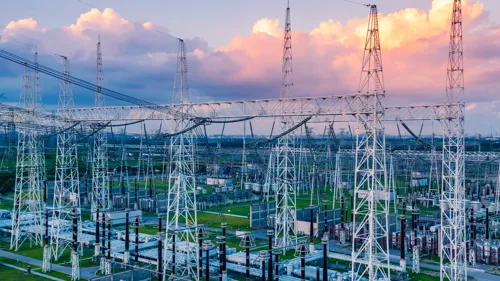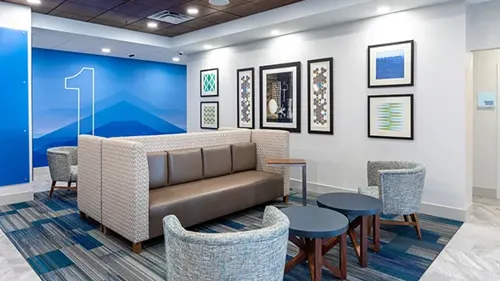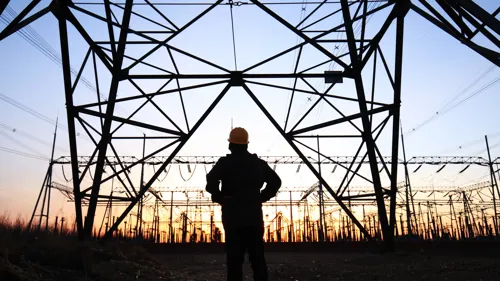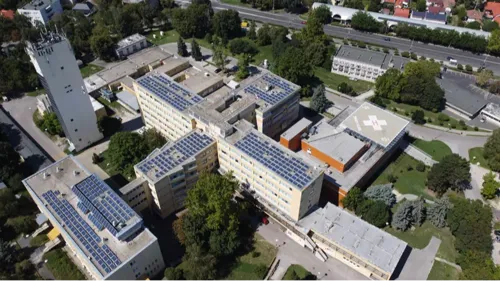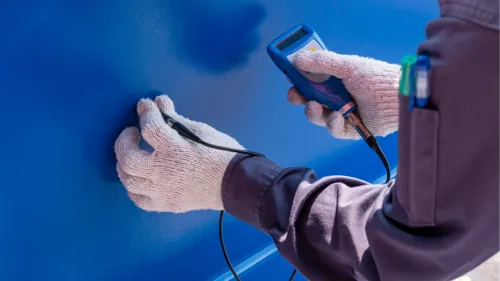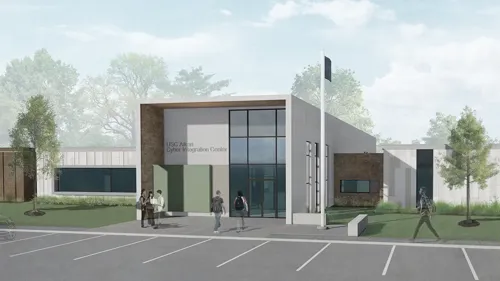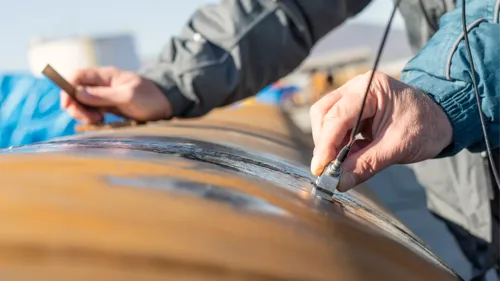Restoration and Resiliency: A Watershed Approach

Our dynamic natural environment is ever-changing, affecting our coastlines, floodplains, rivers, lakes, and streams with higher intensity precipitation events resulting in increased stormwater runoff and water surface elevations, most notably in southeastern portions of the United States. Engineering solutions of today and tomorrow must seek to design and manage human assets while providing stewardship for our natural resources and maintaining sustainable ecosystem function in the face of changing conditions. Communities, industries, and landowners are now seeking to understand this dynamic equilibrium by utilizing newer and more sustainable natural management and design philosophies for the long-term protection of both our precious water resources and critical infrastructure; creating win-win scenarios for the natural and built environments.
History has shown that utilizing naturalistic design techniques for stream resiliency and restoration through the inclusion of multidisciplinary design approaches provides holistic bioengineered sustainable solutions. This collaboration often leads to projects requiring less long-term maintenance and the reuse of native materials harvested on-site that would otherwise end up in a landfill. Managing and restoring rivers, streams, shorelines, and wetlands for their ecological and societal values is a rapidly growing practice.
Watershed management, stream barrier removal, and stream engineering and restoration are integral to managing the many drivers, challenges, risks, and benefits of removing obsolete structures and restoring impacted streams and rivers. This complex multidisciplinary and highly regulated process often involves coordination between the public and private landowners, regulatory agencies, NGO’s, engineers, scientists, and various other stakeholders.
Pond is partnering with clients of all types to collaborate on effective, economical, and innovative solutions from the headwaters to the coast that reconnect and restore streams, rivers, wetlands, and shorelines, increasing the resiliency of watersheds and coastal areas.
People have an inherent connection to water. Civilizations have historically been established along waterways as they have served communities for commerce, recreation, and as a critical resource for survival. Research has shown that there is a positive correlation between interaction with water and happiness. According to Wallace J. Nichols, author of Blue Mind, research shows that being near, in, or under water can make you happier, healthier, more connected, and better at what you do. Protecting, preserving, and restoring our water resources is critical not only to ensure a sustainable future for our environment, but is paramount in providing quality of life and well-being for our families, friends, and neighbors.
As our communities shift from a reactive to a proactive approach by turning our focus to watershed management, our understanding of the challenges we face ahead is becoming clearer and more complex. Watershed management planning initiatives to tackle environmental issues such as systemic flooding, undersized culverts, degrading streams, and historic floodplain encroachment are key to providing sustainable solutions. This approach will allow us to better understand how watersheds dynamically respond to our changing environment and strategically target identified problem areas to provide holistic solutions rather than the classic Band-Aid approach.
Pond’s Environment & Water Resources group consists of a multidisciplinary team of engineers, scientists, permitting specialists, and subject matter experts who work together to solve the complex challenges faced by our clients. Full service environmental survey, design, permitting, construction oversight, and permit compliance is at the core of what we do. Our vision is to be indispensable client champions delivering bold, insightful solutions to transform our world.
The convergence of communities and the environment is where we thrive. All too often communities and critical infrastructure integrity are at risk due to impaired streams that, through urbanization, encroachment, and loss of natural buffers, experience incision and streambank failure. Backyard flooding, channel erosion, and property loss are issues that municipalities are seeking to address for their communities. Pond’s environmental scientists and water resources engineers have been working with the City of Augusta on multiple urban stream restoration/stabilization projects aimed at addressing these concerns. Through the use of natural channel design, bioengineered solutions, and stream buffer restoration, the affected communities will benefit from sustainable design solutions.
Successful ecosystem restoration efforts are highly contingent upon stakeholder engagement and the establishment of clear, concise goals and objectives. As ecosystem restoration is a multidisciplinary field, having input, buy-in, and contribution from all stakeholders, including community members/landowners, municipalities, regulatory agencies, engineers, scientists, and landscape architects is vital to the delivery of a successful project.
Restoration and resiliency projects are interdisciplinary approaches – scientists, engineers and project owners are working together on these multi-stakeholder issues. With projects usually affecting a public resource such as a river or shore, they require public buy-in and good communication representation plans with stakeholders. Because these systems are regulated by federal, local, and state governments, it is important to create a process that correctly designs and permits a project while engaging regulators and stakeholders to meet the project goals.
Pond’s full-service team of water resource engineers, scientists, and permitting specialists is a resource for our clients. Our understanding and proactive approach to navigating projects with multiple stakeholders sets Pond apart from our competitors. We welcome challenging projects and are proud to serve public and private sector clients.
Pond’s current service offerings in the Water Resources sector include:
- Stormwater Master Planning
- Water Quality Master Planning
- Watershed Assessment and Master Planning
- Stormwater Infrastructure Inventory and Assessment
- Resiliency and Sustainability Planning
- NPDES/TMDL/BM AP Compliance
- H&H Modeling and Assessment
- Stormwater Treatment Retrofit
- Aging Infrastructure Replacement
- Flood Abatement
- Green Infrastructure/LID design
- Stream Restoration and Channel Stabilization Design
- Erosion and Sediment Control
- No-Rise Analysis and Certification
- CLOMR/LOMR
- Permitting: NPDES (State/Local), USACE (Individual/NW), FEMA
As we continue to face the challenges of today and tomorrow to build a resilient society, our focus at Pond will be to serve our communities through active engagement and the utilization of multidisciplinary and bioengineered design approaches to develop sustainable solutions. Learn more about Pond's water resources studies & design services.
